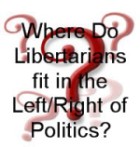The Freeman's Burden:
To defend the principles of human liberty; to educate; to be vigilant against the ever expanding power of the state.
Monday, February 28, 2005
Cato criticizes No Child Left Behind
Thursday, February 24, 2005
Report: 'No Child' Left Behind the Constitution
Canada says no to missile defense
Wednesday, February 23, 2005
The Arab freedom train rolls on
Monday, February 21, 2005
Updated Federal Land Ownership Chart

An astute reader pointed out that the chart I used to show Federal Land Ownership was lacking context. I used an old black and white copy I had on file. Above is the version that can be found on the US Department of Agriculture's National Resources Conservation Service web site. The shading areas represent different percentages of land under federal ownership. This correction in no way undermines the general focus of the piece. It is, however, my belief that it is essential to report facts accurately so that the reader can draw valid conclusions. My apologies for any confusion this may have caused.
An American Original
Saturday, February 19, 2005
New Links Section
What would John Locke say?
*************************************************************
From: Harry Browne.org
The "small government' President: When George Bush ran for President in 2000, and again in 2004, he tried to make us believe in each case that his Democratic opponent was a big-spending liberal and that he — George Bush — was a proponent of small, limited government.
He just submitted his 5th budget to Congress. Those five budgets have increased the size of the federal government by 38%. But after 8 years in the Presidency, Bill Clinton had increased the size of government by only 32%. "Small-government" George is way, way ahead of "big-government" Bill.
You can't blame the recent increases on Congress, because George Bush still hasn't vetoed a single bill in over 4 years in office.
Yes, Albert Gore and John Kerry are certainly liberals. But what is George Bush?
Friday, February 18, 2005
Friedman on Lebanon
In defense of corporations & capitalism
Thursday, February 17, 2005
Debating marriage and freedom
Anonymous said...
John Coleman has an interesting idea,
but I don't think he makes a brilliant case for privatizing marriage. Maybe it's
your use of the word "church" that is confusing me. Marriage is an older
institution than church, if church refers to Christianity. I think he is
recommending that marriage be a religious rite only, not a legally binding
agreement between spouses. Correct? Wouldn't that be pretty much the same as
doing away with marriage?
Wednesday, February 16, 2005
The marriage racket
Monday, February 14, 2005
FEC uncomfortable with political freedom on the net
State v. corporate power
Anonymous said...
"... What progressives often point out is that
government power may not, in modern times, be any more harmful to our liberty
than corporate power, since we can at least try to make our government more
democratic and responsive to the public will, but we cannot force a corporation
to behave responsibly."
Sunday, February 13, 2005
House backs nat'l ID card plan
Saturday, February 12, 2005
On liberty and statism
My Response...Anonymous said...
I agree with some of your arguments. If
Americans ever come to realize that their democratic ability to change
government has been taken away, there will be some violent change. Not the
"wreckage of liberty lost" you are predicting, though. Americans usually carry
out their revolutionary acts alone or in small groups. A bomb, a
shootout...that's enough to scare Americans back into their houses. As long as
we have our bread and circuses we don't care about statism. On the other hand,
what if we had a nation without a government? Imagine...no coercive taxation, no
meddling regulations, just the freedom to watch out for yourself. Oh wait, that
is Somalia, isn't it?

 Contact Me
Contact Me








